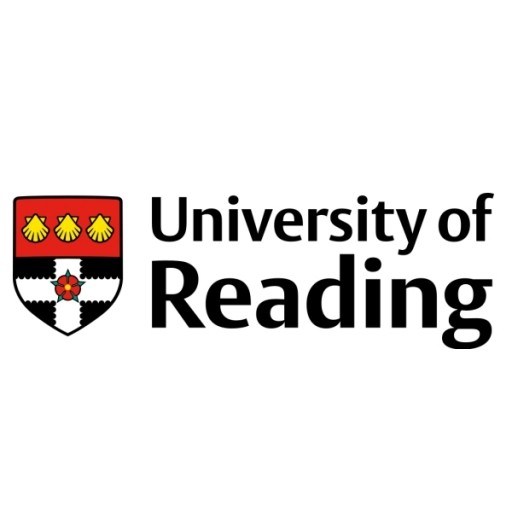Photos of university / #uniofreading
The course is designed to deepen your understanding of theory and practice of ELT, embedded in broad educational contexts.
This course is aimed at teachers of English as a Second/Foreign Language (ESL/EFL) in primary, secondary or tertiary education or new graduates who aspire to be teachers of English.
It enables you to acquire knowledge and skills in the areas of second language acquisition, ELT methodology, educational studies and academic skills. It also encourages you to reflect on your own pedagogical practices and/or learning experiences in ESL/EFL.
In additional to modules offered by the Institute of Education, students will be able to choose extra modules offered by the Department of English Language and Applied Linguistics. These optional modules cover a range of topics related to applied linguistics including sociolinguistics, psycholinguistics, English for specific purposes and child language development.
- English and Language: Study Skills and Research Methods – this provides a foundation for the ELT module, and includes developing essential English language skills.
- Second Language Teaching and Learning – this module will examine major themes and current developments in foreign language teaching and learning in depth. It aims to help students understand current theory and research on various aspects of foreign language teaching and learning, and relate theory and research to educational practice in different cultural contexts.
- Investigating Education – this is a core module and looks at issues related to conducting research in an educational context. This module provides support for conducting the dissertation.
- Developing Expertise in Teaching – this optional module focuses on the idea of an expert teacher, how this differs across the world and how such teachers can be developed.
- Assessment and Measurement – this covers a range of issues associated with the role of assessment in education and of measurement in educational research.
Requirements
- IELTS: 7.0
- You are normally required to have a good undergraduate honours degree (or equivalent from a university outside the UK). Apart from the standard University entry requirements, we normally expect students to have a professional background in education with experience of teaching. Ideally we would like students to have had at least two years' experience of teaching but will consider applications from good students with less experience. If you have a slightly lower degree qualification than usual, this can be compensated for by good teaching experience.
The University of Reading offers various funding options for students enrolled in the Education (English Language Teaching) program. Tuition fees for international and domestic students differ, with detailed information available on the university’s official website. Prospective students are encouraged to explore scholarships, grants, and bursaries specific to the Faculty of Education. The university provides merit-based scholarships for outstanding applicants, which may cover partial or full tuition fees. In addition, students can access government loans and sponsorships depending on their country of residence. The university also participates in several international scholarship programs aimed at attracting talented students from around the world. For Erasmus or similar exchange programs, students might be eligible for financial support to cover travel and living expenses during their period abroad. On-campus accommodation options are available, with various price ranges and meal plans, which are optional but can be an essential part of the total cost of studies. Part-time work opportunities are available both on and off-campus, allowing students to earn supplementary income while studying. The university’s financial aid office provides comprehensive guidance on applying for funding and managing study-related expenses. Students are advised to check the deadlines and eligibility criteria for each funding source well in advance. It is also possible to combine different funding options, such as scholarships and loans, to finance further studies. International students should consider additional costs such as visa fees, health insurance, and travel expenses, which are not covered by university funding. The university encourages early planning and consultation with financial advisors to develop a feasible budget. Overall, studying Education (English Language Teaching) at Reading offers various avenues for financial support, making quality education accessible to students from diverse economic backgrounds.
The Master of Education (English Language Teaching) at the University of Reading is a comprehensive postgraduate program designed for educators, language specialists, and researchers interested in advancing their understanding and skills in teaching English as an additional language. This program offers a blend of theoretical foundations and practical applications, equipping graduates with current methodologies and innovative approaches to language instruction. The curriculum covers core topics such as language acquisition theories, curriculum development, assessment strategies, and the integration of technology in language teaching. Participants also explore sociocultural aspects of language learning, enabling them to understand diverse learner needs and contexts.
The program is structured to provide flexibility for working professionals, with options for full-time or part-time study, and includes a combination of lectures, seminars, workshops, and independent research. Students benefit from access to the university’s extensive resources, including language laboratories, libraries, and online learning platforms. The program emphasizes research skills and encourages students to undertake projects that contribute to the field of English language education, promoting evidence-based teaching practices.
The faculty involved in delivering this program are experienced scholars and practitioners with expertise in TESOL (Teaching English to Speakers of Other Languages), linguistics, educational technology, and curriculum design. The diverse student body fosters a global learning environment, preparing graduates to work in various international contexts, including schools, language institutes, universities, and government agencies. Upon successful completion, graduates will be equipped to improve language education policies, develop effective teaching materials, and contribute to evidence-based practices in English language teaching. The program also opens pathways for those wishing to pursue doctoral research in related fields. Overall, the program aims to prepare reflective practitioners capable of leading developments in English language education worldwide.

